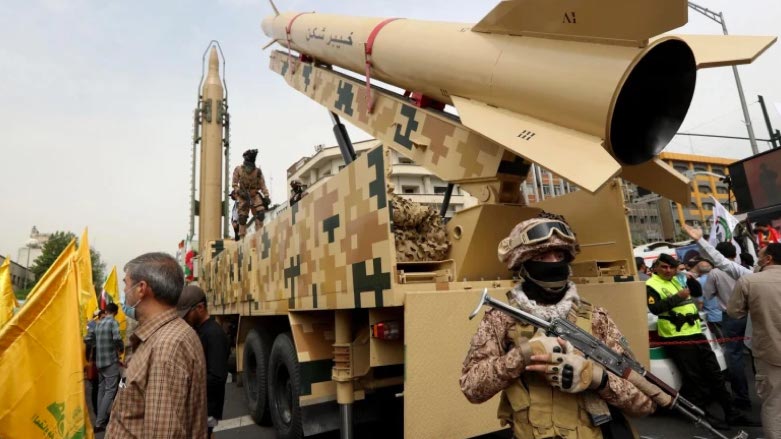Riyadh warns of Iranian attack on their country or Erbil—US ‘concerned’ and will defend ‘our interests and partners in the region’

WASHINGTON DC, United States (Kurdistan24) Saudi Arabia has warned the US about an “imminent” Iranian attack on targets in that country or in Erbil, The Wall Street Journal reported on Tuesday.
Tehran’s aim, the Journal said, would be to distract attention from the ongoing, country-wide protests triggered seven weeks ago by the death of the 22 year-old Kurdish woman, Jinna (Mahsa) Amini, while in the custody of Tehran’s so-called “morality police.”
The US military, for its part, has raised its level of alert, while the White House National Security Council (NSC) responded by expressing its concern, along with its readiness to act in defense of US interests and those of its regional partners, the Journal reported.
“We are concerned about the threat picture, and we remain in constant contact through military and intelligence channels with the Saudis,” an NSC spokesperson told the Journal. “We will not hesitate to act in the defense of our interests and partners in the region.”
Briefing journalists later on Tuesday, State Department Spokesperson Ned Price said much the same.
Previous Iranian Attacks—went unanswered
The Journal cited previous Iranian attacks on the Kurdistan Region, noting that Tehran had used “dozens of ballistic missiles and armed drones on the Kurdistan Region since late September,” using as a pretext that “Iranian Kurdish separatist groups” were responsible “for fomenting the unrest at home.”
None of those attacks were met by any meaningful US response—even though US forces are based there, as they work together with the Kurdish Peshmerga in an international coalition to fight ISIS terrorists.
One is tempted to conclude that the lack of any meaningful US response to those attacks encouraged Iranian officials to think they could continue such attacks without meaningful consequences.
The Journal also noted that Iran has accused Saudi Arabia, the US, and Israel of instigating the protests. The Saudis support “Iran International,” a Persian language satellite news channel, and Tehran claims that Riyadh is “interfering in our internal affairs” through such media.
While “Iranian officials have blamed Iran’s foes for inciting the unrest, such unsupported claims are a familiar tactic for the regime, which has blamed Iran’s adversaries during previous domestic protests,” the Journal stated.
At the same time, that does not diminish the seriousness of the threat.
